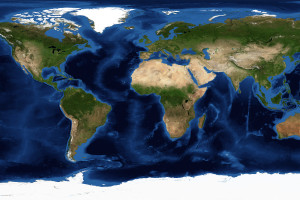NEWSWATCH: How the Ukrainian Diaspora Sees the Homeland

[“Ukrainian Politics Abroad: How the Ukrainian Diaspora Sees the Homeland” – Foreign Affairs – foreignaffairs.com – Olena Lennon – March 17, 2015]
Professor Olena Lennon, from the University of New Haven, writes on the experiences and attitudes of those of Ukrainian origin or heritage in the United States. Points of interest include perspectives on history, Russia, Europe, and the Russian and Ukrainian languages.
The diaspora is distinctive in several ways. … many in the group are preoccupied with historical victimization, a feeling that stemmed from the Soviet ban of Ukrainian in order to accelerate the assimilation of ethnic minorities. One of the oldest Ukrainian American publications, the New Jersey-based paper Svoboda (which means freedom), reprinted an article from The New Republic in May 2014 by Yale professor Timothy Snyder. In the piece, Snyder claimed that no other European country suffered more grief in its history than Ukraine, especially between 1933 to 1945 when Joseph Stalin’s iron rule and later, Nazi occupation made it ‘the deadliest place on Earth.’ He also suggested that Ukraine and Europe had always had strong ties both historically and today. ‘Ukraine has no history without Europe, but Europe also has no history without Ukraine,” he wrote. “This seems still to be true today.’
Attitudes towards Russia are said to not be positive.
Another unifying characteristic among some of the diaspora was an extreme anti-Russia sentiment, in both its Soviet and post-Soviet forms. The clashes and fighting in Ukraine over the last year and a half has in some ways validated and reignited these sentiments, reinvigorating a sense of unity among the Ukrainian diaspora but also fueling radical nationalism.
The author highlights an emphasis on language.
A final characteristic is that, many Ukrainian American children, whether the first, second, or third generation, have been required by their parents and grandparents to learn Ukrainian and speak only in Ukrainian at home, so as to save the language from extinction. In part, this is because of the Soviet Union’s Russification policy, which left many ethnic Ukrainians believing that the survival of the language was the responsibility of the free Ukrainians living abroad. The language is kept afloat by dozens of Ukrainian language media outlets, as well as organizations dedicated to establishing Ukrainian schools. The Educational Council of the Ukrainian Congress Committee of America oversees 35 Ukrainian schools and seeks to ensure ‘the preservation by the American Ukrainians of the Ukrainian language and the culture of their forefathers.’
At the same time, some Ukrainians living in Ukraine itself are said to have more moderate views of Russia and linguistics.
Most of the people living in Ukraine hold somewhat more moderate views of Russia and the Ukrainian language. Despite the Ukrainian diaspora’s anti-Russia zeal, many in Ukraine realize that Ukraine and Russia are inseparable in many ways-especially when it comes to history, culture, and economy. … In terms of language, post-Soviet Ukrainian society is essentially bilingual. There are only slight regional differences as to which language, Ukrainian or Russian, is considered primary
The author comments that “[t]he Ukrainian diaspora has, of course, offered tremendous support for the democratic movement in Ukraine …”.
Click here for “Ukrainian Politics Abroad: How the Ukrainian Diaspora Sees the Homeland”
